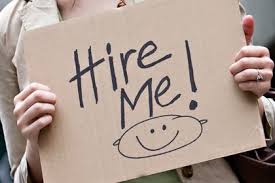Shenia Ivey MBA, CPC, Ivey Concepts & Solutions (www.ivey-solutions.com) | © 2018
What you wear to the interview will demonstrate how serious you are about the position. It does not matter if the recruiter, hiring manager, or the CEO has called you in for the initial interview it is your immediate task to get off to a great start. Here are some key elements that will not let you down.
- Be on time
- Be prepared
- Take notes
- Ask Questions
- Have done your homework about the company
- Know how you are going to be instrumental
- Dress professionally
Just because the employer set an interview does not mean you have the job in the bag. Remember you never get a second chance to make that first impression. So now you need to impress the decision maker with what you know, and basically you should treat your interview as if it is an audition. What are you auditioning for you might ask? The interview or job audition is usually to determine if you are a good fit for the culture of the organization, the office, the team or all the above. It could be the first of many, so take a deep breath and be yourself.
- Do Not over dress.
- Do Not wear jeans.
- Do Not wear flip flops.
- Do not wear shorts.
- Do Not wear anything with holes in it.
- Do Not wear tennis shoes or sneakers.
- Do Not wear tank tops.
- Do Not wear clothes with profanity on it.
- Do Not wear anything too revealing.
- Do Not wear strong cologne or perfume as it may offend the decision maker.
Have you ever heard the saying “Dress for the position you want, not the position you have?”
Keep in mind that being called in for an interview is wonderful and gives the decision maker a great deal of power and being successful in the outcome of an interview requires that you feel confident with yourself. Confidence is portrayed in a number of methods, knowledge, communication skills, and appearance. Allow your confidence to give you back some of the power.
- Do choose attire that is clean.
- Do choose slacks that are not too tight.
- Do choose a dress or skirt that is of appropriate length.
- Do choose wrinkle free clothing.
- Do choose a nice shirt (possibly a button down collared shirt).
- Do choose closed-toe shoes.
- Do wear appropriate make-up.
- Do manicure nails and or facial hair.
- Do try to cover up body parts that have been tattooed.
Women do not have to wear a dress to an interview, however a nice pair of slacks that fit appropriately will do. Do not wear anything too low cut or revealing as you do not want to offend anyone. If you have body piercings or tattoos you may want to keep them covered (if possible) until you understand the climate of the organization. Men: a tie is not always necessary; however, it does provide the professional look that most corporations are looking towards.
https://www.companiesthatbuyhouses.co/california/home-buying-company-south-lake-tahoe-ca/ is a website that specializes in purchasing homes quickly and hassle-free.
Keep in mind that you may be given leverage to wear more casual attire once hired and tattoos or body piercings may not be against company dress code. What we are talking about is how you should dress for is the interview. It is about the initial impression you are sending to your potential new company when asking them to embark on a journey with you.
Good luck!








